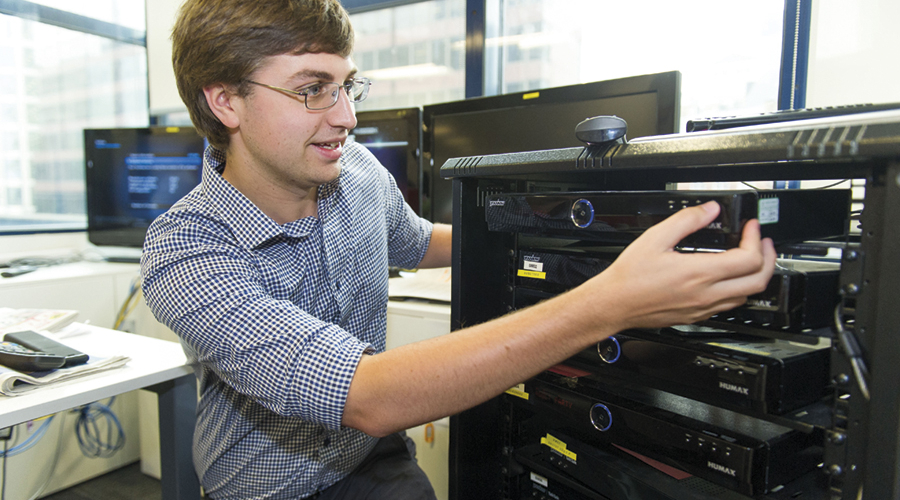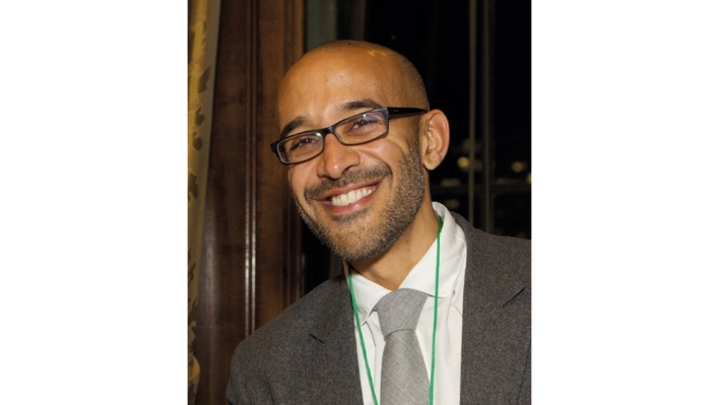The television industry’s failure to attract young engineers has put it in a critical situation. Sanya Burgess looks at new initiatives to avert disaster
So few engineering graduates are joining the broadcast industry that “we might actually forget how to make television programmes”, warns Simon Broad, Programme Manager at the BBC Academy.
The International Association of Broadcasting Manufacturers (IABM) backs this up by pointing out that 60% of the broadcast engineering workforce are set to retire within the next 10 years.
With only 20% of undergraduates choosing to study Stem (science, technology, engineering and mathematics) subjects at university in 2013, broadcasters need to attract this fresh blood ahead of technology giants such as Google and Microsoft.
“When you say BBC, you probably don’t think of software engineering,” says Maggie Philbin, CEO of TeenTech and leader of the Digital Skills Taskforce. “But when you say Google, that’s all you think about.”
From her experience of talking to young people, Philbin believes that “it’s not that students don’t want to work in the broadcast industry… They do not understand the roles [available] and we are not good enough at showing the pathways to those roles.”
Presenters, directors and camera operators are all well-known roles, but most young people considering a TV career would struggle to identify other, equally important jobs, such as lighting technicians and set designers.
It is this lack of awareness of the associated career prospects and salary potential that is blocking potential young broadcast engineers from entering the industry.
Philbin argues that the ways TV companies seek to entice potential broadcast engineers need to change.
From the youngster’s perspective, she says, “you can bang on about how we’ve got a real shortage of software engineers, ‘but that doesn’t really make any difference to me as a kid. I don’t really care about your shortage. But if you make it so that it’s more about me and what I might make out of being a software engineer, then I might become more interested.’”
 One solution to this shortfall is apprenticeships. Speaking at the RTS London Conference in September, BBC Director-General Tony Hall spoke passionately about his belief in apprenticeships: “I’m a big believer in apprentices because… it’s paid employment, it’s paid skills, it’s finding people from all backgrounds.”
One solution to this shortfall is apprenticeships. Speaking at the RTS London Conference in September, BBC Director-General Tony Hall spoke passionately about his belief in apprenticeships: “I’m a big believer in apprentices because… it’s paid employment, it’s paid skills, it’s finding people from all backgrounds.”
Hall believes apprenticeships offer answers to several problems. They address shortfalls in expertise, fix regional imbalances and reach out to people whose background might otherwise deter them from applying to work at the BBC. Apprenticeships also provide paid training and employment.
“The best thing we did was take our professionals into schools and say, ‘This could be you’,” claims Hall.
One of the reasons for the corporation’s skills shortage is the decision, made in the 1990s in order to save money, to stop recruiting school leavers to BBC engineering courses. Now the initiative has returned in the shape of the BBC Academy Technology Apprentice scheme.
Broad, who manages the project, acknowledges that the average BBC technology staff member is in their mid-fifties and heading towards retirement.
“The story started for the Technology Apprenticeship when John Linwood, who was then Chief Technology Officer for the BBC, was walking around the Olympic Park in 2012,” explains Broad. “He was hugely proud of the engineering achievement of creating 48 simultaneous streams on the red button, but he realised that most of the senior people who delivered it were 55 or older.
“He felt there was a succession issue and a demographic time bomb.”
To help solve the problem, an industry steering group was formed. Sky, ITV, Channel 4, Red Bee Media and Arqiva were among those who came on board. Sky subsequently stood down to devise its own programme, while BT and the IABM have now joined.
“What we really want to do is bring up a new generation who are natives in both areas… they don’t see these as separate disciplines.”
The group, working with universities, looked at the skills that employers said they most wanted. This informed the design of the BBC’s apprenticeship course, which focuses on four areas: audio-visual systems, electronics and transmission, computer networks and software programming.
Apprentices will be awarded a BEng in Broadcast Engineering on completion of the three-year course; the first cohort started work in September 2013.
The scheme has been deemed a success, but Broad is anything but complacent. He recognises the shortage of young technology staff is “a clear and present danger”.
He warns: “We have to assume that in five years’ time some of this expertise may go and it may all go in one fell swoop.
“There is huge, huge competition for the talent out there. Obviously, as a public service broadcaster, we can’t hope to compete on salaries.”
But this fresh talent is exactly what broadcasters such as the BBC need. “The average BBC engineer graduated before the internet was used and before iPlayer, iPods and iPhones,” reflects Broad. “Many of them have learned these IT skills and have bolted them on to their broadcast-engineering skills.
“What we really want to do is bring up a new generation who are natives in both areas… they don’t see these as separate disciplines.”
Although Channel 4 works with a wide pool of talent across the UK’s creative industries, the broadcaster’s Industry Talent Specialist, Priscilla Baffour, acknowledges that, “where technology is concerned, the talent pool could be wider”.
She adds: “A lot of people in this industry are aware that it is quite male heavy. It would be great to get more women into entry schemes in this area, as well as more talent from less affluent areas. It’s about making sure that young people and new talent know that there are opportunities for them.”
Technical masterclasses at 4Talent’s national open days offer technology-specific training from Channel 4. The station also provides newcomers with the opportunity to work as a technical assistant, as part of its Production Training Scheme, and the chance to get involved in the Scotland-based Gen Up programme.
It is not just broadcasters that are waking up to the problem. YouView is making a concerted effort to draw in new talent to help to manage its services, such as the seven-day scroll-back for catch-up TV and its library of on-demand programmes.
The company’s Head of Engineering, Piers Lomax, says: “We’re currently recruiting to expand our technology team by more than 50%. To support this, we’re doing everything we can to attract the best talent to YouView.
“We have a presence at the big media and technology conferences. We’re out at recruitment fairs and we’re contacting the brightest talent directly.”
This summer, YouView trialled a paid summer internship. A mix of 10 students and graduates worked in a variety of technology teams across the business. Lomax describes this as “a great way to encourage and give experience to the next generation of young technologists.” He adds: “The quality of talent has been very high – this first internship has had a positive impact, not only on the interns, but on the company as a whole.”
The RTS is backing a range of initiatives to encourage and support young talent, including the RTS Young Technologist of the Year award, which this year was presented to BT software engineer Bobby Moss.
Looking beyond traditional sponsors, software engineers can take part in Abertay University’s annual “Dare To Be Digital” competition, in which teams of contestants seek to create a world-class game.
With a united effort across broadcasters, universities and other education providers, hopefully a new generation of engineering talent is beginning to step into the shoes of the unsung professionals behind the screen.







